
Octopus Facts, Health Benefits and Nutritional Value
A dietitian explores the health benefits, downsides, and nutritional value of eating octopus. The octopus is a type of cephalopod that lives in the ocean. It's well-known for having eight legs and being one of the most intelligent creatures in the sea (1, 2). Octopus is also a culinary delicacy […]
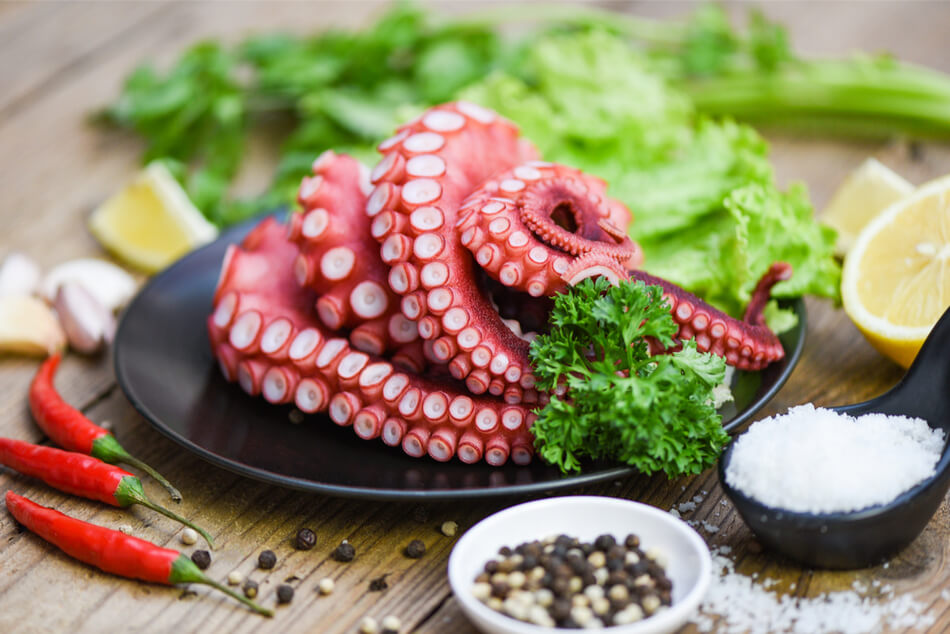
Is Octopus Health? You'll Want to Find Out Health Reporter
Omega-3 Selenium Copper Vitamin B12 It's also an excellent source of potassium, magnesium, and calcium. Studies show that these minerals in combination can reduce the risk of stroke and promote a.
Common Octopus National Geographic
High in protein: Octopus is an excellent source of lean protein, which is essential for muscle growth and repair. Low in fat: Octopus is low in saturated fat and cholesterol, making it a heart-healthy food choice. Rich in vitamins and minerals: Octopus is packed with vitamins B12, B6, and minerals like iron, copper, and selenium.
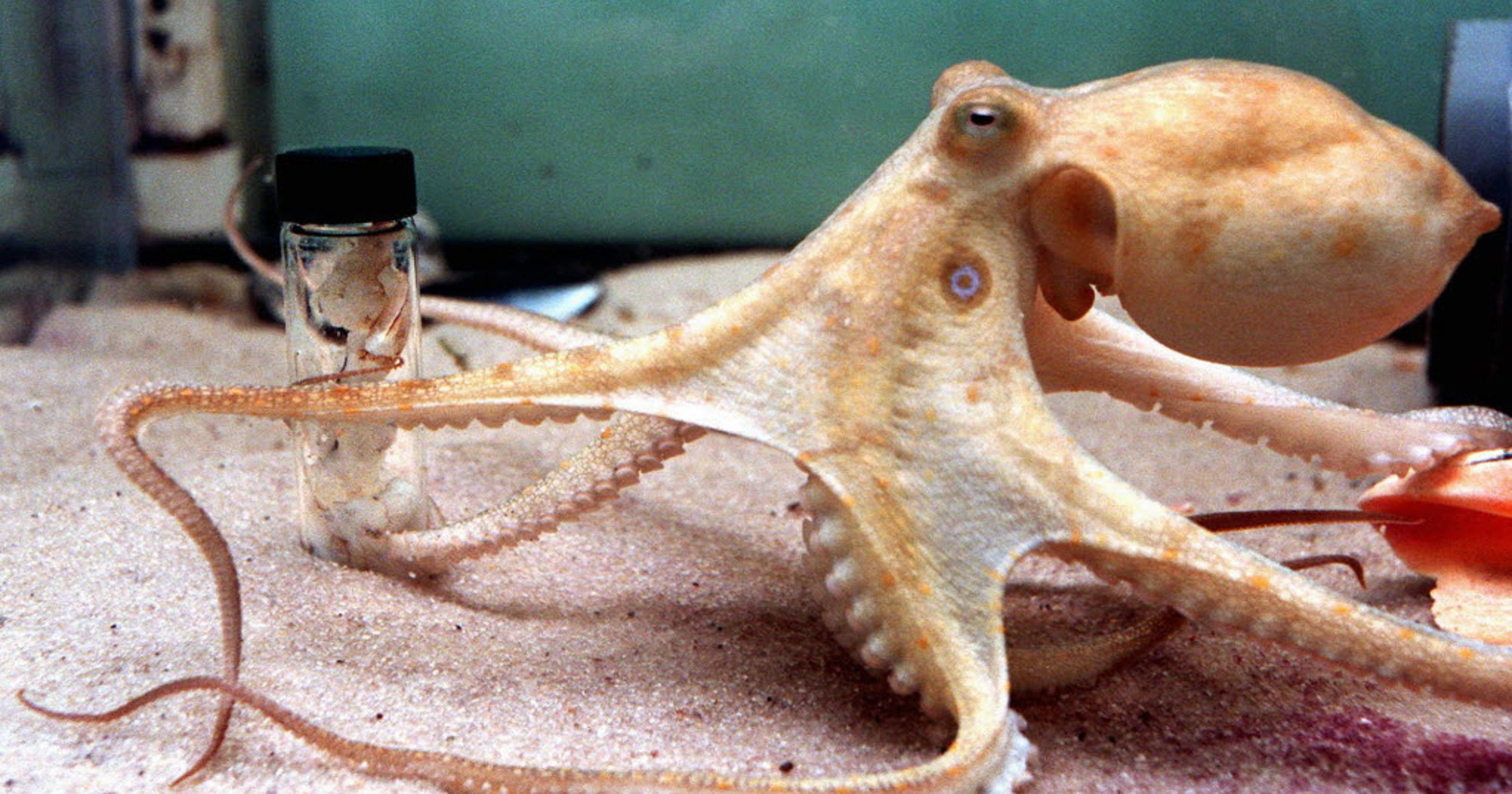
How does an octopus eat? Ask USA TODAY
Health Benefits Allergies Adverse Effects Storage and Food Safety Octopus is a type of shellfish that serves as an important source of protein for many coastal communities around the world. This fascinating sea creature is also considered a delicacy in many cultures.
/182147638-56a006d35f9b58eba4ae8c3e.jpg)
Octopus Facts Habitat, Behavior, Diet
Octopus is also high in omega-3 fatty acids, which are healthy for your heart (more on that below). Moreover, octopus is high in vitamins and minerals such as zinc, copper, and selenium. Grilled Spanish Octopus Octopus Is Good For Your Heart

Health benefits of Octopus YouTube
Table of Contents Do People Eat Octopus and Is It Safe? People have been eating octopus for centuries, and many cultures consider it a delicacy. Octopus is a nutritious food that is high in protein and low in fat. However, an octopus has potential risks, such as mercury contamination.
:max_bytes(150000):strip_icc()/octopus_annotated-f8f903f1be0a4fc19bc3aa495f1f198f.jpg)
Octopus Nutrition Facts and Health Benefits
Octopus is a great addition to any diet that seeks to be healthy. Its nutritional values are impressive and it is possible to preserve it in different ways. Also, its flavor, perhaps, is the strongest point of this amazing food. How to clean the octopus correctly.

octopus Healthy Soul
Octopus provides your entire daily requirement of vitamin B-12. This vitamin is essential for metabolism, creating new red blood cells and supporting everyday brain functions. You need 2.4 micrograms of vitamin B-12 each day, says the Office of Dietary Supplements. Having a 3-ounce serving of octopus for dinner offers more than 30 micrograms.

Pet Octopus Care Guide Diet, Breeding & More » Petsoid
Table of Contents Octopus Diet Octopuses are carnivorous invertebrates that primarily feed on other ocean creatures. Their diet varies depending on their habitat, size, and species of octopuses. Octopuses are opportunistic predators, meaning they eat whatever is available in their surroundings.

Is Octopus Healthy? Nutrition, Recipes, Side Effects, And More
Yes, overall octopus is a healthy option. It is low in calories and fats while maintaining a generous amount of vitamins and minerals, including the B vitamins, selenium, magnesium, and a host of others. Furthermore, octopus is a great source of protein and healthy fatty acids.

7 Octopus Health Benefits, Nutrition & Side Effects
Is Octopus Healthy? Octopus is a nutritious seafood option that can provide an array of health benefits. It is low in fat, high in protein, and packed with vitamins and minerals such as vitamin B12, iron, and zinc. Additionally, octopus contains taurine which has been linked to numerous health benefits including improved cardiovascular health.
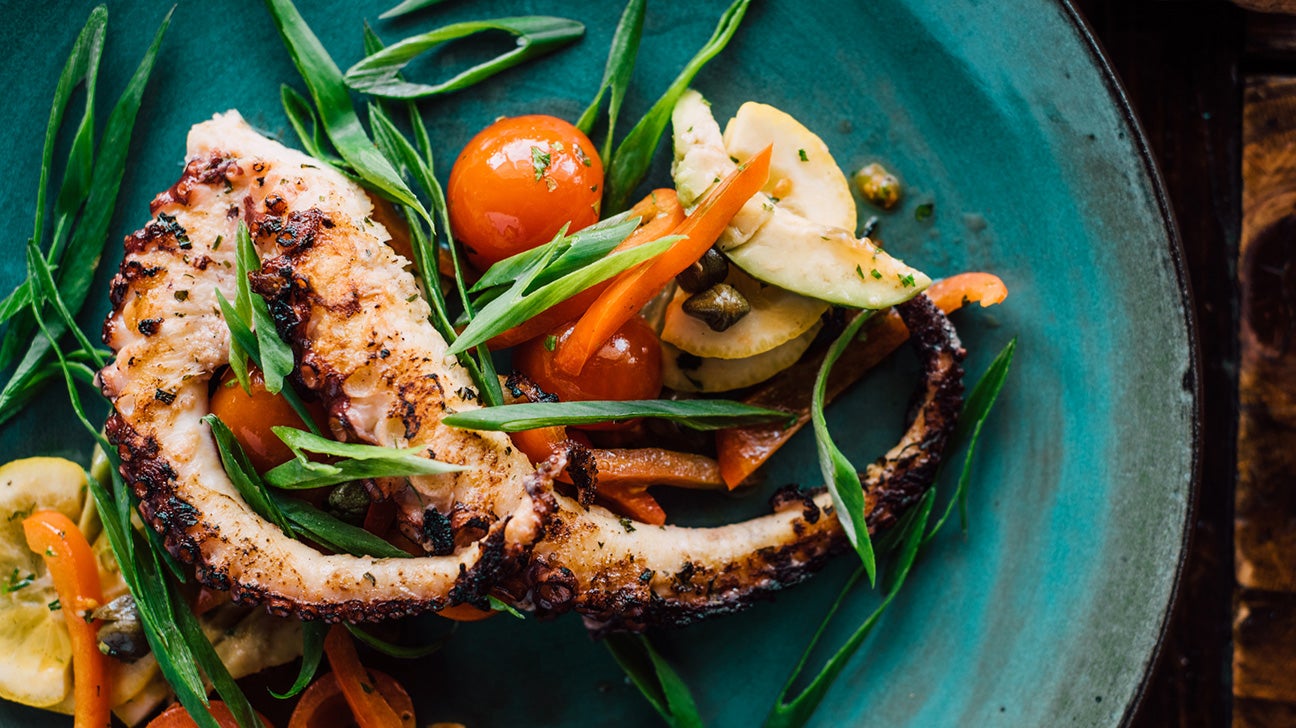
Is Octopus Healthy? Nutrition, Benefits, Downsides
Octopus is an excellent source of omega-3 fatty acids, which are known as "good fats" that have been linked to a range of heart-healthy benefits. Omega-3s can lower blood pressure and slow the buildup of plaque in your arteries, reducing stress on the heart.

Octopus, Natural Seafood, Healthy Organic Food Stock Image Image of food, cuisine 107761023
Health Benefits of Octopus Octopus does not have hard shell and belongs to mollusk family which also includes oysters, mussels, clams, nautilus and squid. It is vital in Mediterranean dishes and regarded as delicacies. It has high content of Omega-3 fatty acids that helps to lower the chances of stroke and heart attack.
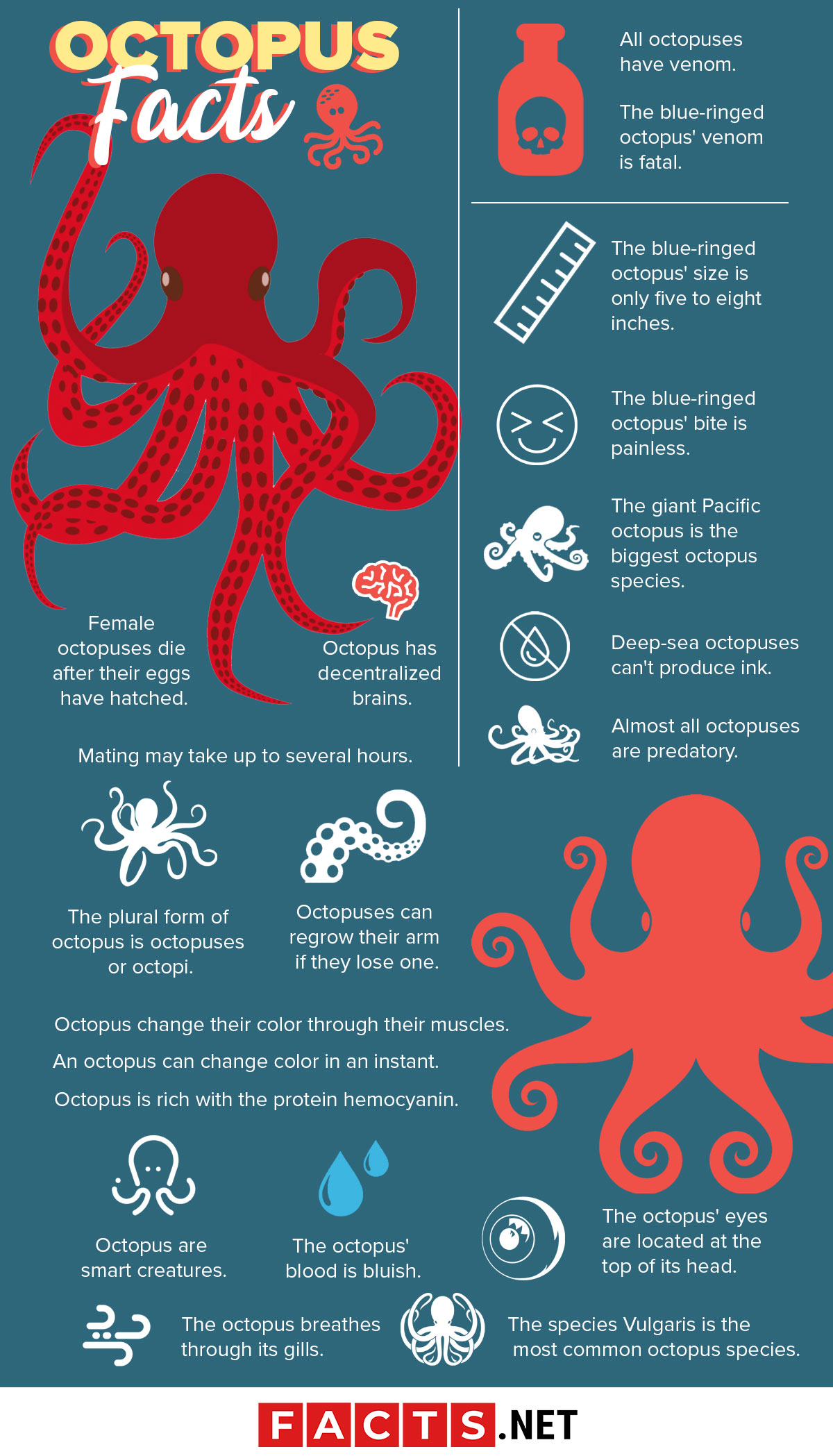
50 Surprising Octopus Facts You Probably Never Knew
Octopus is rich in omega-3 fatty acids that help in fetal development, improve cognitive functions, and maintain cardiovascular health, while the antioxidants strengthen immunity. Who Can Consume It? Everyone can eat octopus, as long as they are not allergic. How Often?
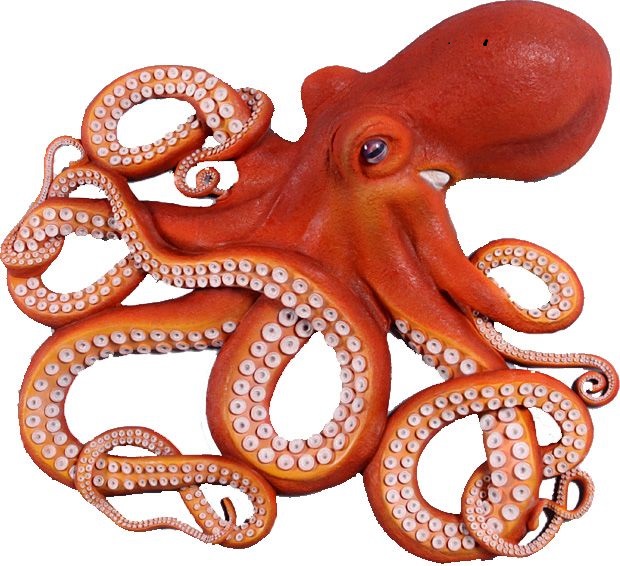
health benefits of octopus health benefits
Octopus is an excellent source of lean protein, providing about 15 grams per 3-ounce serving. It is also low in fat and cholesterol, making it a great choice for those looking to maintain a healthy weight. Octopus is also a good source of important minerals, including calcium, magnesium, phosphorus, selenium, and zinc.

What Does Octopus Taste Like Carmela POP
29th December 2023 The octopus is a type of cephalopod that lives in the ocean. A dietitian explores the health benefits, harms and nutritional value of eating octopus. It is known for having eight legs and being one of the most intelligent sea creatures ( 1, 2 ). Octopus is also a culinary delight in coastal areas around the world.